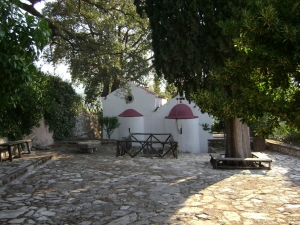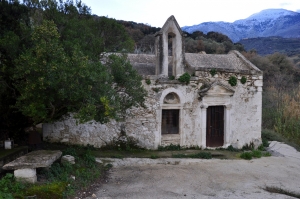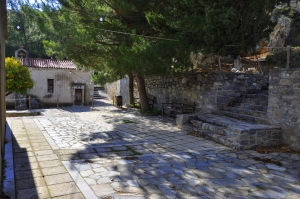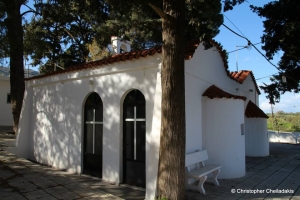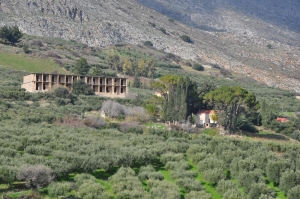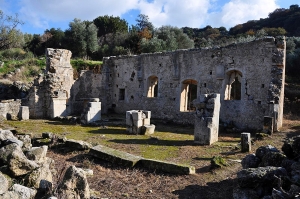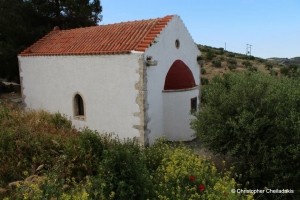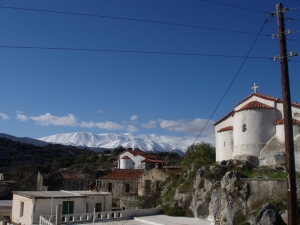The monastery of Chrysopigi is built in a wooded ravine with plane trees by the village Pirgou but now does not operate. A spring is located in the courtyard of the monastery. Next to the church there are the remains of winepress and olive mill.
By Sarchos we meet one of the most impressive churches of Cretan innerland with a beautiful relief entrance and rear window, which is dedicated to the Birth of the Virgin Mary. The church dates back to the 14th century and is double-aisled, bearing very important frescoes.
The monastery of Panagia Kera Kavallaras operated as a dependency of Dionysiou Monastery at Athos in the 15th century and was dedicated to the Virgin Mary. The temple of the ruined monastery is well maintained, but has undergone many alterations. The location oversees the plains of Malevizi and Heraklion.
By the highway at position Gazi we find the church of Agia Marina, celebrated on July 17. The church of Agia Marina is doubled aisled with the second aisle dedicated to Saint Spiriodon. Saint Spyridon, which was the original church, was built in 1901 by the Andreas Kalokerinos. Kalokerinos after the departure of the Ottomans from Crete acquired a huge fortune in the most fertile part of the whole of Crete, the province Malevizi.
The Venetian monastery of Jerusalem is located at village Loutraki but now does not operate. The monastery was a center of revolutionary activity against the Turks and refuge for some of the most famous chieftains of Crete.
The ruined monastery of St. Anthony at location Petali was one of the finest religious monuments that patiently awaits its restoration. Here we discern the destroyed two-aisled church that was dedicated to the Virgin Mary and St. Anthony. The south wall, the only one still standing belongs to the nave of St. Anthony.
On the day of the Exaltation of the Holy Cross (September 14) celebrates the Monastery of Stavromenos located just outside the village Avgeniki, province Malevyzi, next to the picturesque settlement Vlahiana. The deserted monastery is one of the many monasteries founded in Crete during the Venetian domination and reaching their heyday till the arrival of the Turks, after which the monastery was slowly deserted. Today we meet some remains of the monastery buildings (part of the walls of monk cells), a base of a limestone-carved winepress and a trough. Around the church we see many trees, vineyards and olive groves.
The church of Agios Georgios at village Kamariotis is a triple-aisled basilica of the 16th century with a dome and an outer narthex. The doorway of the narthex is richly decorated with the Lion of St. Mark (the symbol of Venice) and the crest of Kallergis, one of the strongest Cretan families who had special privileges from the Venetians.











